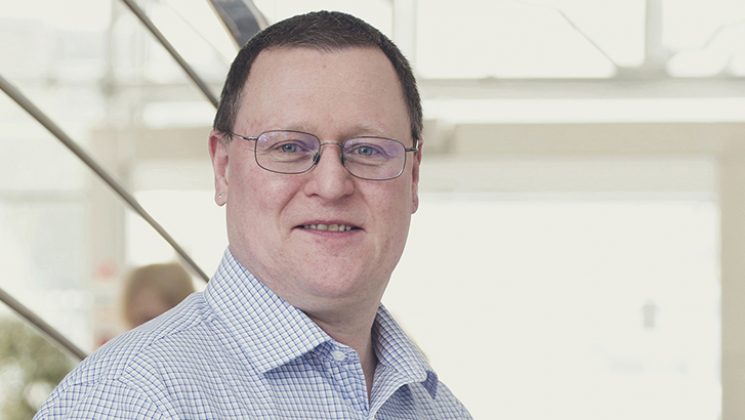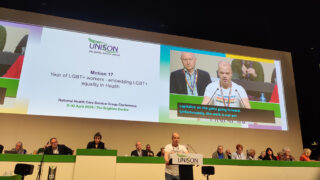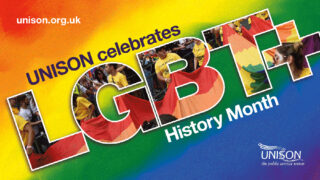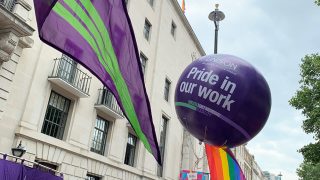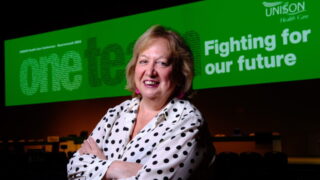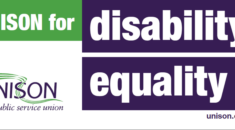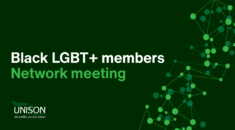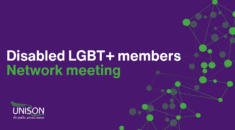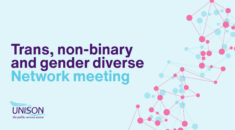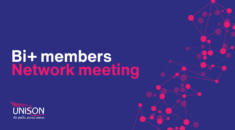Nick O’Reilly is the chief technology officer at the NHS Business Services Authority (NHSBSA), an executive, non-departmental public body of the Department of Health, which provides some support services to the National Health Service in England and Wales.
Last year, he was approached by CEO Alistair McDonald and Jane Miller, the head of wellbeing and inclusion at the authority. They asked him to consider what it meant to him to be a member of the NHSBSA leadership team and to come from the LGBT community.
“What a challenge,” Nick says, “because the honest answer was that, despite being out at work as a gay man, I hadn’t really ever thought to combine my leadership role with my LGBT experiences.”
He describes himself as out at work, “yet also partly still in the closet”. Since joining the authority in 2016 he hasn’t taken an active part in its diversity and inclusion network. And since being appointed to his first management role in an information and communications technology department, with Rugby Borough Council in 2004, he’s “chosen career over community”.
But until then, he had been an active member of UNISON’s lesbian and gay network (it became LGBT slightly later than his active involvement). He was involved in fighting Clause 28, the infamous part of the 1996 Local Government Act that stated that local authorities should “not intentionally promote homosexuality” or “promote the teaching in any maintained school of the acceptability of homosexuality as a pretended family relationship”.
There has been, he notes, “massive progress in LGBT rights in the last 20 years. I never foresaw a time of equal marriage or when there would be step changes in drugs that can prevent and hopefully soon cure HIV.
“My early life as a gay man was one dominated by ignorance – from people, from society and from government. Perhaps seeing such change has made me complacent.”
For all that progress, Nick knows that the challenges he faced remain for those starting their own journey now. “With age and experience it may get easier to come out as lesbian, gay or bisexual inside and outside the workplace, but that doesn’t mean it is easy at first. And I know all of these are very different to choosing to live your life in your own gender and not the gender you were born with.”
As a football fan, “I’m still waiting for the British football community to find and support the first out and proud gay footballer,” he says. In contrast, he can celebrate “another first for lesbian women” with England’s former women’s captain Casey Stoney being out and accepted.
“For me there is an important message: if just one person can feel more confident by seeing openly LGBT people succeeding and achieving, then it makes a difference.”
Nick goes on to say that, “As a member of our own leadership team, the least I need to contribute is to be visible and to be seen as a champion of LGBT colleagues. I can’t claim to be a leader in our NHSBSA LGBT community until I can reconnect with it – but I can and will be more visible and more high profile.”
He’s been helped by attending a Stonewall empowering leadership course, as a result of which he’s made some commitments. He says he brought back three key messages from the course:
- It’s important to be your best self, and that means being allowed to be yourself and not having to edit part of your life. “One fellow course member told the story of editing his weekend, because of the reaction he would get from colleagues.”
- People make life-changing decisions when they’re ready, and when the environment they live and work in is supportive. “One delegate well into her career in the public sector had made a life-changing decision after years of unhappiness.”
- Having visible LGBT role models is important and these aren’t always linked to management positions. “Just about everyone on the course reflected this. And most others were clearly more visible in their workplace as role models than I am in mine.”
Nick concludes: “As the song goes, ‘I am what I am’ – but perhaps I’m not playing all my cards. What point is there in holding on to the deuces or not dealing myself or my LGBT community any aces?”
Along with Stonewall and his fellow course delegates, he acknowledged his thanks to UNISON “for its part in my early LGBT journey”.
Whether you’re starting your own journey or are well along the road, you can find out more about the LGBT community in your union.
The NHS Business Services Authority has made it onto Stonewall’s Top 100 Employers list for 2019. Stonewall stated that every organisation featured “has done great work over the past year to help achieve acceptance without exception for all LGBT people.” The list is a result of the charity’s UK Workplace Equality Index, a powerful benchmarking tool for employers to measure their progress on LGBT inclusion in the workplace.

